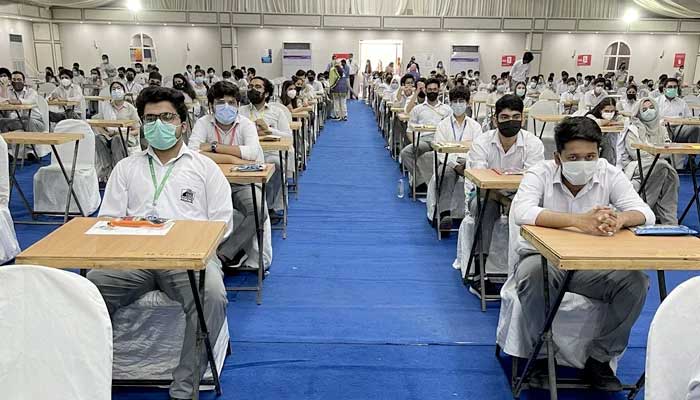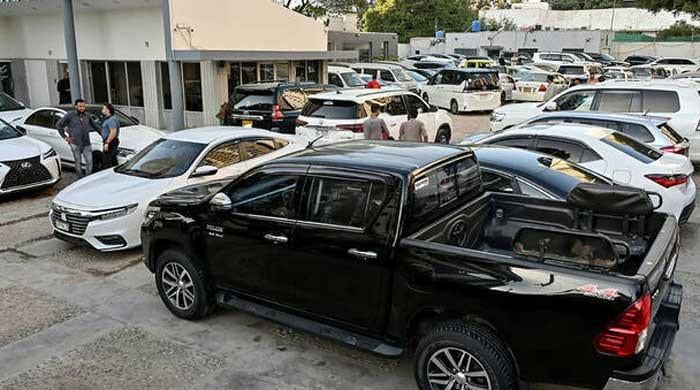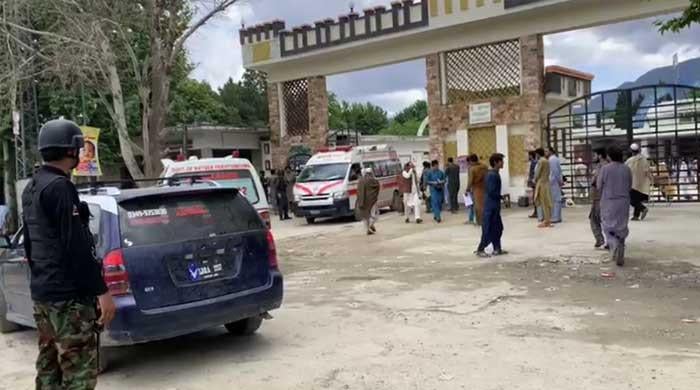Opinion: The Cambridge exams conundrum has no easy solution
All we have are a set of imperfect options to mitigate the damage while ensuring a limited degree of fairness to a majority of students
May 01, 2021

Last year’s handling of the IGCSE and O/A-Level exams by Cambridge Assessment International Examinations (CAIE) had to be MacGyvered at the last moment.
Schools had to assemble student portfolios in a rush, predict grades and rank students. CAIE then ran a normalisation algorithm to produce a grade. This initial approach produced such problematic results that it had to be shelved a week after the initial release of grades, and students were assigned their schools’ predicted grades. As the pandemic dragged on and schools remained closed, there was a possibility exams would not be held in 2021 either. The responsible thing to do was to remain prepared and build student portfolios from the start.
Since fall, CAIE has been giving regular updates that it would plan to conduct exams where possible, and develop alternative methods to assign grades where needed this year. It came down to three options for the May 2021 exams: power through, delay or replace.
A. Power through
Conduct exams as usual where conditions allow for it. An option least disruptive to students’ academic schedule and careers but comes with a non-zero risk of infection. The Ministry of Federal Education and Professional Training (MOFEPT) — reportedly with provincial consensus — went for option A.
If it had done a better job at planning CAIE exam arrangements, the exam cancellation could have been avoided. This mismanagement led it to choose option B: Delay.
B. Delay
Let students sit for the October 2021 exam session. Of course, there is no guarantee what conditions will be like then. That is a calculus of risk vs opportunity that every student and family has to perform for themselves.
Delaying admission has had a knock-on effect on competition for university admissions. Last summer, a lot of high-school graduates in the West did not wish to compromise on their college experience and postponed college for a year when they switched to online classes. That backlog of students will start college this year, leaving fewer spots for this year’s high-school graduates, sharply reducing admissions acceptance rates.
For example, Cornell’s acceptance rate has gone from 11% in 2019 to approximately six% this year and UCLA’s from 12% to approximately seven percent (provisional figures).
Similar numbers are hard to come by for Pakistani universities. Students here tend to attach less value to the college experience, so the decline will probably not be this steep, but might still be a factor. The point is: students planning to start college this year and next year will likely have a harder time getting accepted to the college of their choice until the backlog is absorbed.
C. Replace
Substitute exam grades with school assessed grades (SAGs) if exams cannot be held and/or schools had to remain closed all year. CAIE will assign grades relying on student portfolios collected by schools throughout the year.
Reportedly, private schools were preparing for Option C. This option is most favoured and being demanded by a large segment of IGCSE, O/A-Level, IB students because it means no delay in starting university, no risk of having to take a gap year and no risk of infection. It puts greater influence and power over final grades in the hands of schools and teachers who are accessible to students and parents, something nobody is acknowledging in the public debate in Pakistan.
Even other countries had to warn parents
A few weeks ago, when CAIE announced it would cancel exams in the Middle East and use SAGs again, one of the oldest British schools in the region had to explicitly remind parents not to attempt to pressure teachers into disclosing their children’s assessed grades.
This is not an isolated incident.
On March 11, The Guardian reported that headteachers and teachers in the UK were asking the government to regulate the SAGs system and protect teachers from parental pressure to unduly favor their children. In another report in The Guardian on February 25, students who work hard year-round expressed their wariness of fairness concerns in SAGs.
Here in Pakistan it is more complicated.
Pakistan's school assessed grades dilemma
Pakistan is among a group of countries where the competition for admission to local universities of choice is so cutthroat and where a lot of private schools are so blatantly commercialised, their billboard and TV ads appear alongside those of consumer goods.
Last year, when news came that grades would be determined based on school predicted grades and assessment samples submitted to CAIE, some (not all) private schools in Pakistan sensed a business opportunity. They began campaigns to poach weak students from competing schools who were willing to transfer and seek retro-active admission (that is: pay the whole year’s tuition fee) in return for assurances that they would receive the predicted grade they sought and be given the opportunity to submit a portfolio of post hoc assessments to support it.
Even this year, school owners/professionals from the private school sector admit that many schools could not collect as much or as robust evidence as others. This was due to issues including starting late last year, lack of attendance, high absenteeism in and cancellation of term/mock exams, high incidents of cheating in online exams, etc. So, a blanket statement, “we have enough evidence” is not factual.
In our context, CAIE’s approach to SAGs is not consistently adopted across schools and is susceptible to corruption and perversion. The fact that our schools have so far not even acknowledged this susceptibility in the public debate is problematic, albeit makes perfect business sense.
At this point, it is worth noting the non-difference between ‘teacher assessed grades’ and ‘school assessed grades.’ The impression that teacher assessed grades, used last year, put all the power in the hands of the teacher, while school assessed grades are more systematic and include some school-internal oversight process is false.
Even last year, conscientious schools submitted grades that went through multi-stage reviews in school. If a school in Pakistan simply forwarded whatever grade teachers assigned, it did wrong.
In any case, given the commercial nature of the private high-school sector, its business interests and the cultural values we live by every day, SAGs do little to improve fairness.
If the government reverses itself and approves the use of SAGs, the target of parents’ pressure will shift from the MOFEPT to their children’s schools. Influential parents will twist arms to get the grades they want for their children. In any case, most private schools will not want to be known as being ‘disloyal’ to their customers.
Schools argue that it is unfair to make A2 students about to graduate high-school appear for exams because students in countries that adopted SAGs will have an advantage. How is this not an admission that SAGs will be inflated? How is that fair to the local Matric/Intermediate stream of students they will be competing with for admissions to local universities?
Last year, grade 12 (2nd year Intermediate) students received a version of predicted grades (their grade 11 marks plus three percent) to get them out of the school system. First year Intermediate students were told their exam score for 2nd year, this year, would be similarly doubled. Thus, Intermediate students last year and this year will have to sit for exams in at least one of their two years and will not graduate high-school avoiding exams altogether.
Letting the group of CAIE students, already viewed as more advantaged, privileged and better resourced compared to their public school peers, skip all external assessments for two years in a row, while the much larger group of Intermediate students sits through exams would have been problematic.
CAIE-style evidence-based SAGs for public schools are not practical for many of the same and additional reasons.
Teachers do not have the resources or the experience of maintaining student assessment portfolios; and introducing that culture is not a short-term exercise. Suggestions that the government could have used SAGs like CAIE in public schools are uninformed or disingenuous.
School systems around the globe are affected by the extraordinary circumstances this pandemic has put the world in. This is not a novel or a film. There is no deus ex machina forthcoming that will elegantly resolve this situation to the satisfaction of, and perfect fairness to, everyone. All we have are a set of imperfect options to mitigate the damage while ensuring a limited degree of fairness to a majority of students.
Originally published in The News











